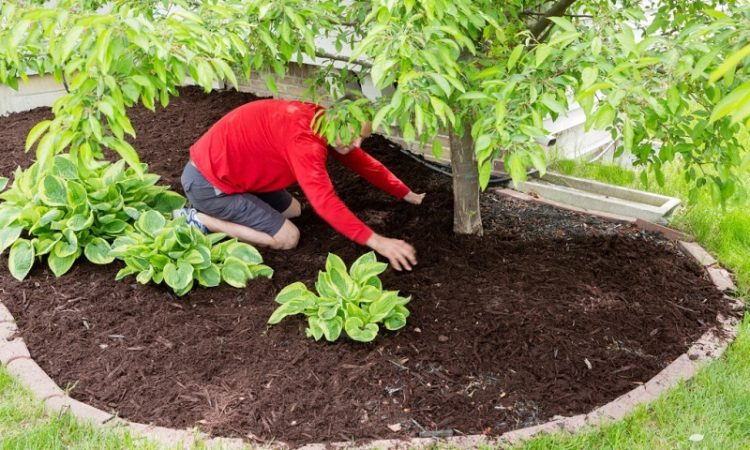
With spring comes lawn work. It is inevitable. However, it may also be gratifying watching all of your hard work blossom and bloom round you. A significant part landscaping which most individuals do not consider in detail is mulch. After all, what’s mulch? And why if you mulch your landscaping and garden?
We know mulch is cosmetic. In reality, it is a relatively quick means to enhance the appearance of your whole lawn. Your lawn looks amazing. But which sort of mulch should you purchase? In the end, it comes in various materials, colors, and dimensions.
What’s mulch?
Fundamentally, any substance that covers dirt is known as mulch. This includes hard components such as knots and stones to milder ones such as dirt and straw.
What are the advantages of mulch?
Soil should not be left exposed. Earth covering protects soil from erosion, which helps maintain moisture, and keeps the ground’s temperature. All of that are valuable for plant development.
Controls soil erosion:
From rain and wind.
Retains humidity:
To decrease strain in your plants.
Why You Have to Eliminate weeds :
to reduce stress on your plants.
Why you need to get rid of weeds before mulching:
Not only are you weeds nasty, but they also steal valuable nutrients out of plants. Aggressive weeds could be downright harmful, taking over your lawn or garden. In an earlier essay, we discussed if you need to kill weeds or pull on . In any event, be certain that you eliminate weeds prior to applying mulch.
Organic mulch vs. inorganic mulch
Organic compost is made of natural substances that break down with time. Inorganic mulch includes stones, gravel, and pebbles. The two kinds of compost assist deter weeds and preserve moisture, but natural mulch can offer added nutritional advantages to your crops.
What’s organic mulch?
Organic mulch is beneficial for your soil since it adds nourishment as it breaks and decays over time.
Wood bark:
Bark is…bark. It comes in massive pieces, decays gradually and should only be used in addition to the ground (not blended in).
Wood chips:
Smaller than bark, they include chopped bits of plant and branches matter. They keep water and break down quicker than bark.
Shredded timber:
Decomposes the fastest.
Compost:
Too nice to be a high mulch since it doesn’t suppress weeds efficiently, compost is best blended into dirt for extra nutrition.
Straw:
Only watch out for windy days as a few might blow away.
Grass Clippings:
Free and easily available, just use small quantities of green grass which have yet to be fertilized or treated for weeds.
What’s inorganic mulch?
If non maintenance is a determining factor on your landscaping afterward inorganic substances like pebbles, gravel or stones are ideal for you. These stones keep in moisture, block bud growth, and may seem fairly in flower beds. Regrettably, however, there are not any nutritional benefits. Pumice stone is often utilized in flower beds since it is porous and lightweight (retains moisture).
Why is hardwood mulch popular?
Hardwood mulch is among the most well-known kinds of mulch used nowadays. It is cheap, easy to use, and may be conveniently purchased in bulk or from the bag.
What are the various varieties of hardwood mulch?
Not only are there varying shapes and sizes of wood mulch, in addition, there are various kinds of wood used.
Cedar mulch:
It lasts quite a while and smells terrific!
Cypress mulch:
The bark and the wood of this cypress tree are ground into chips or stained. They remain in position and smell nice.
Colored mulch:
Comes in black, white, brown, red, and specialty colors. But do not worry that the dye is nontoxic and secure. Colored mulch is generally a combination of wood chips and stained pieces.
Natural mulch:
No color is added to the wood-based mulch and it gets exactly the very same advantages of others.
Hardwood chips:
This mulch is composed of chopped up bits of wood bark. It decomposes faster thanks to the small size so that it’s fantastic for places that you till frequently.
New wood chips:
Want to create your own mulch? In case you’ve got a timber chipper/spreader you’ll be able to recycle broken limbs and debris and then turn it into mulch.
How can I apply mulch?
First, eliminate all weeds. Then add mulch or other nourishment and operate them in the soil. Last, employ a 3-inch layer of compost, ensuring to eliminate plant stems and tree trunks.
